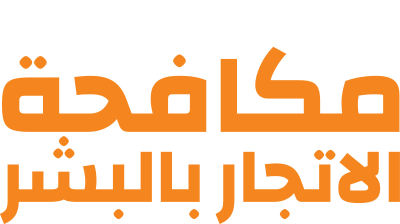Myths and facts

There are many myths and misunderstandings around human trafficking. Most of them are spread by traffickers and bad employers to justify exploiting their victims.
Not every employer is exploitative. But a boss who constantly seeks to justify dominating a worker has probably strayed over the line into exploitation.
A good test is for an employer to ask themselves: how would I feel if these statements were made about me – that I was an exploiter, a dominator, a human trafficker? How would I feel if my son or daughter had to work under the same conditions as my employee?
Human trafficking goes on in the shadows. The person being exploited may well be on the wrong side of the law, but that doesn’t mean they should be treated simply as a criminal – they are a victim too. They are human and deserve the fullest respect and dignity, like every other human being.
- Women working as prostitutes may have been forced into it by violence or threats of violence.
- Someone who is in the country illegally may not realise it. They may have travelled to the country believing they were heading for a respectable, legal job.
- People who are desperate may break the law, but only because they can see no other way of earning a living, or helping their family back home.
This is why those fighting against TIP work with police officers, prosecutors and the courts, to make them more aware of the reasons why people who have fallen into the hands of human traffickers should be considered more as victims than criminals.
That way the victims of human trafficking can get the help and support they need to rebuild their lives.
Myth
She should be grateful for the opportunity to have this job rather than staying with no job at all in her own country. She knew perfectly well what she was getting into. She signed a contract and she has to stick by it.
Fact
Victims of human trafficking are never told the truth about what they are signing up for. They are tricked with false promises. Often their conditions start off as acceptable but then deteriorate.
Myth
He’s making far more money here than he could back home.
Fact
The fact that someone is earning more compared to what they might earn back in their home country is no reason to deprive them of their legal rights as a worker. Everybody deserves to be treated properly, within the law.
Myth
We paid good money to an agency to bring her to work for us. She can’t leave until we’ve had our money’s worth. If she wants to leave early, she has to pay us.
Fact
The agreement is between the employer and the agency. If things don’t work out well, the employer has no legal right to claim agency fees from the employee. The problem must be solved with the agent not with the employee.
Myth
I can’t be treating my workers badly otherwise they would leave and get another job.
Fact
Victims of human trafficking are usually too afraid to try to find another job. They may be threatened with beatings or actually locked up. Their employer may have taken their passport away, making it impossible for them to leave. The employer may tell them that they can’t get another job without their permission.
Myth
The real problem is, she’s lazy and stupid. I have to punish her and discipline her to get her to perform well.
Fact
No worker should be punished for their performance. The law regulates procedures for non-performance and such procedures should be respected. Physical assault and threats are against the law.
Myth
I’m looking after her passport, because otherwise she’ll lose it.
Fact
It is illegal in Oman to take someone’s passport away and refuse to give it back.
Myth
It would be unsafe for her to leave the house. I’m just keeping her safe.
Fact
It is against the law to deprive someone of their freedom of movement. Workers should be free to come and go after working hours.






